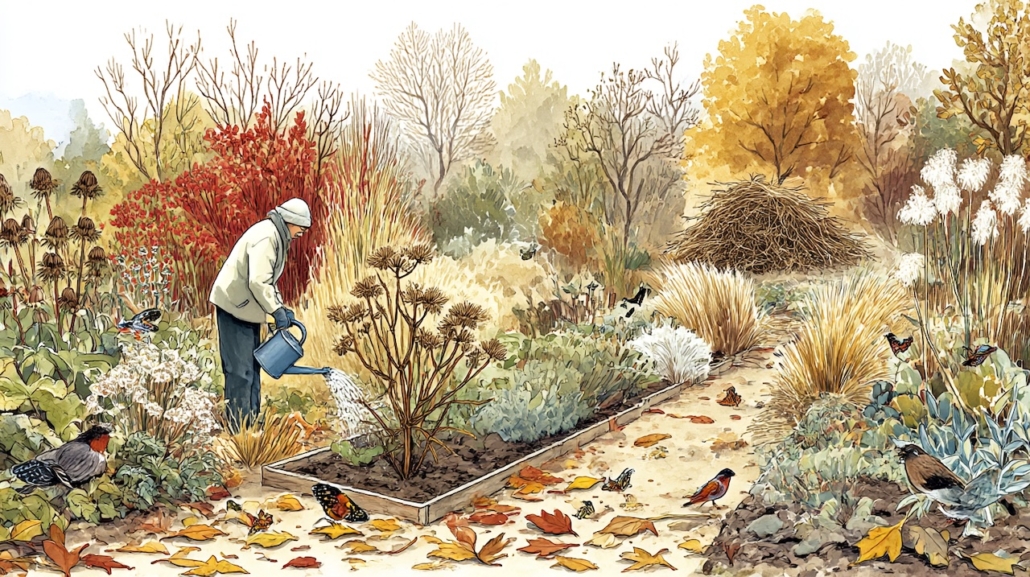MAINE-LY GARDENING: What’s in the garden? Preparing for winter and looking ahead

 by Jude Hsiang
by Jude Hsiang
We still have warm days ahead making preparing our gardens and yards for winter easier. Doing a few chores over the next couple of weeks will make a big difference come spring.
The soil cools down slowly in the fall, and roots are active until the soil temperature reaches 40 degrees. This means that any woody plants or perennials will appreciate any rain we are fortunate to receive. In our current drought conditions, remember to give special attention to recently planted trees and shrubs to help them as they adapt to winter dormancy. Flowering perennials and other smaller plants like berries and groundcovers are still in need of water.
For some of us, last week’s cold weather brought frost, and we are already clearing the vegetable gardens of affected plants. A little housekeeping work in the vegetable garden now will mean starting next spring with fewer weeds and pests that could overwinter in the soil. As you remove dead garden plants, it will be easier to see any perennial weeds like dandelions and tough grasses you might have missed earlier.
With the soil cleared or roots, now is a great time to have it tested, especially if this hasn’t been done in several years. Soil laboratories aren’t quite as busy at this time of year, which means your results will be returned faster than if you wait until spring. If the results indicate that some amendment or fertilizing is needed, you have time to plan. Having the soil tested has another benefit – you may find that you really don’t need some treatments you’d planned and can save money. The University of Maine offers several types of tests to choose from depending on what you are growing. Home – Analytical Lab and Maine Soil Testing Service – University of Maine
In the flower garden, the fall routine depends on the level of neatness you want. In the past, people tended to remove all annual plants that had stopped blooming. However, those plants may be producing seeds that some birds will appreciate whether they need energy for their long migration journeys or will be spending the winter with us. Perennials, too, can offer food for the birds. In addition, lots of insects spend the winter in the soil or leaf litter and most of them are good neighbors. You can do a little research in a good gardening book or online at a university or other science-based site to learn more about how to help Nature by letting the flower garden look a little less tidy.
You can also help our birds and beneficial insects by adding more native plants to your garden and yard. Some of these plants can be added in the fall or winter. See the WildSeedProject.net, Maine’s excellent native plant organization, for the seeds collected by dedicated volunteers and step by step directions for planting, Fall is the ideal planting time for these plants that will grow easily through the winter. Future meals for our good bugs and feathered friends. Beautiful natives for our landscapes
© Judith Chute Hsiang
Jude Hsiang is a retired Extension Master Gardener instructor and member of the China Community Garden.
Responsible journalism is hard work!
It is also expensive!
If you enjoy reading The Town Line and the good news we bring you each week, would you consider a donation to help us continue the work we’re doing?
The Town Line is a 501(c)(3) nonprofit private foundation, and all donations are tax deductible under the Internal Revenue Service code.
To help, please visit our online donation page or mail a check payable to The Town Line, PO Box 89, South China, ME 04358. Your contribution is appreciated!


Leave a Reply
Want to join the discussion?Feel free to contribute!